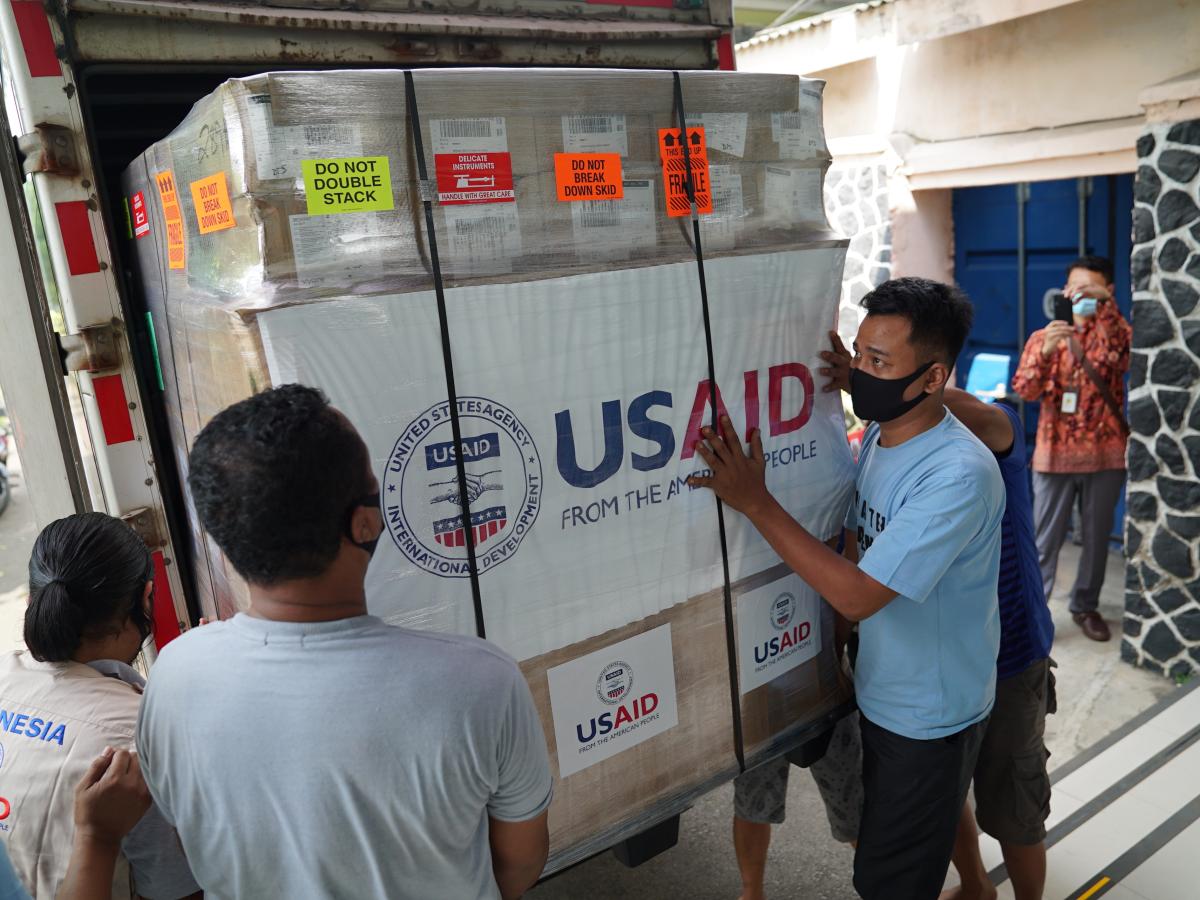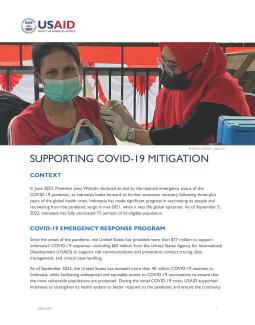Context
In June 2023, President Joko Widodo declared an end to the national emergency status of the COVID-19 pandemic, as Indonesia looks forward to further economic recovery following three-plus years of the global health crisis. Indonesia has made significant progress in vaccinating its people and recovering from the pandemic surge in mid-2021, when it was the global epicenter. As of September 5, 2023, Indonesia has fully vaccinated 75 percent of its eligible population.
COVID-19 Emergency Response Program
Since the onset of the pandemic, the United States has provided more than $77 million to support Indonesia’s COVID-19 response—including $65 million from the United States Agency for International Development (USAID) to support risk communications and prevention, contact tracing, data management, and critical case handling.
As of September 2023, the United States has donated more than 40 million COVID-19 vaccines to Indonesia, while facilitating widespread and equitable access to COVID-19 vaccinations to ensure that the most vulnerable populations are protected. During the initial COVID-19 crisis, USAID supported Indonesia to strengthen its health system to better respond to the pandemic and ensure the continuity of health services. This assistance was implemented through sixteen partners, including international organizations, U.S. and Indonesian civil society organizations, and universities.
Since July 2021, USAID supported COVID-19 efforts through six implementing partners: 1) FHI360; 2) MPKU Muhammadiyah for COVID-19; 3) International Federation of the Red Cross and Red Crescent; 4) Johns Hopkins Center for Communication Programs; 5) UNICEF; and 6) John Snow Inc. Through these mechanisms, USAID trained and mobilized health care workers, set up equitable COVID-19 vaccination services, and helped the government and people of Indonesia stop the spread of the disease. As of September 2023, two programs—implemented by UNICEF and the USAID Country Health Information Systems and Data Use (USAID CHISU) activity—are still providing COVID-19 support. UNICEF and USAID CHISU are helping to enhance and expand vaccine data systems and other digital support activities. UNICEF also continues to provide health supplies, as well as water and sanitation upgrades for select health facilities.
Results
Since the start of the pandemic, USAID has supported:
More than 13,230 vaccinators across 33 of Indonesia’s 38 provinces to provide COVID-19 vaccinations to over 3.4 million Indonesians;
Vaccination services across 5,674 mass, fixed, outreach, and door-to-door/mobile vaccination sites;
COVID-19-related risk communications messaging to over 50 million television viewers, 35 million radio broadcast listeners, 65 million new users of the USAID-supported national covid19.go.id website, and 54,000 users of interactive voice response services;
Digital COVID-19 vaccination-related campaigns to reach more than 89 million social media users through March 2023; and
Risk communications skills, infection prevention and control, surveillance capacity, severe and critical case management, and COVID-19-related laboratory skills for 861,223 frontline healthcare workers and 1,983 hospitals, clinics, laboratories, and private pharmacies.
Contact
Enilda Martin, USAID at enmartin@usaid.gov


